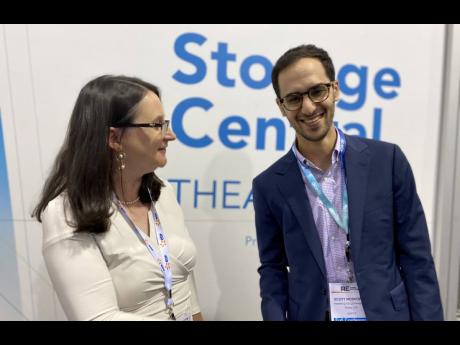US hunting foreign solar investors
With the recent enactment of the Inflation Reduction Act, foreign investors are being invited to invest in solar manufacturing in the United States.
Head of market intelligence and public affairs at Qcells, Scott Moskowitz, said the US has never had a comprehensive clean energy manufacturing policy.
“The last time we had major domestic manufacturing incentives was 2009 when the recovery act was passed after the global recession,” he said, adding that it offered funding for the tax credit and loans programme.
It also resulted in a “bunch of investment” across the industry but was unsustainable, Moskowitz added, as no long-term incentives were included and it did not do enough to make US manufacturing competitive on a global basis.
Qcells is the largest crystalline silicon module manufacturer in the United States and is set to grow bigger, with its recent announcement of a US$170 million investment in a new US solar module assembly plant.
In 2018, the manufacturer built a factory in Dalton, Georgia, a 1.7 gigawatt solar module assembly plant, which produces about 12,000 solar panels per day.
“A month ago, the Inflation Reduction Act passed and in it is a policy called the Solar Energy Manufacturing for America Act that is a landmark piece of legislation. It provides a 10-year tax credit, easily monetisable and direct to each part of the solar supply chain,” said at the RE+ renewable energy conference, held in California from September 19 to 22.
The event was staged to promote the latest US technologies and innovations in renewable energy management, storage solutions and regulatory changes needed to encourage the transition from fossil fuels to clean energy.
Moskowitz said the “timing is better than ever” for foreign investors to play a major role in making the US solar supply chain more resilient.
He encouraged potential foreign investors to engage SelectUSA, a government programme led by the US Department of Commerce that focuses on facilitating job-creating business investment.
Moskowitz said it was critical to assess the potential manufacturing location relative to a major labour pool as well as the best incentive package and that investors can offer retraining programmes where necessary to properly equip their labour force for respective jobs.
“I think we are going to see a lot of folks over the next six months start to announce things. There is an immediate incentive to bring module manufacturing online just because the credits are available at the beginning of 2023. There will probably also be joint ventures, start-up investment and companies from Europe that we haven’t seen in a while starting to invest in the United States again,” he said.

